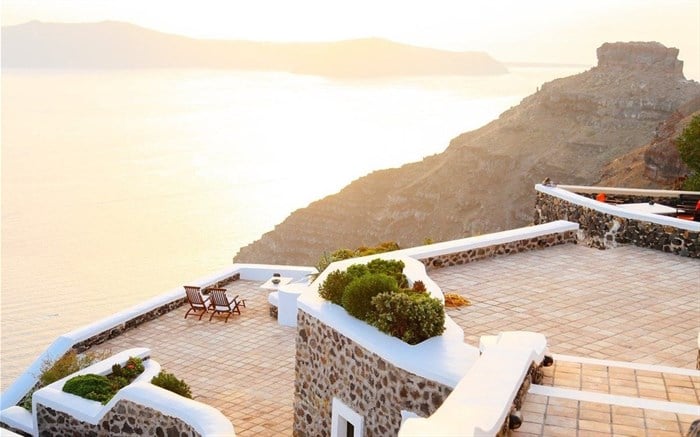
Subscribe & Follow
#AfricaMonth
Jobs
In the news
The reinvention of travel in 2020
These unprecedented times have drastically altered the tourism industry and caused catastrophic impact during the initial phased global lockdown; in spite of the subsequent relaxations which have brought some relief. Global travel restrictions and quarantine-periods have limited movement in and out of countries, posing new complexities which have resulted in unavoidable uncertainty for travellers and operators in the space.

There’s no denying that we have all acquired a great appreciation for travelling the world, although transcending borders are now more intricate. The pandemic has changed the rules for travel and set new consumer expectations particularly for the luxury traveller akin to reigniting wanderlust.
Now perceived as a much more precious commodity, it is now a prerequisite for travellers to rely on expert help and guidance to make their future expeditions as seamless as possible. Increasingly, the luxury traveller is said to have a greater desire for more thoughtful and purposeful travel that will allow them to spend time on the right awe-inspiring experiences.
Hospitality and travel providers should prioritise offering an elevated human touch that ensures the safest and most private travel possibilities for the luxury traveller at every touchpoint. During these uncertain times, the discerning traveller wants even more assurances than normal that things will be curated with the careful attention to detail required when it comes to their care.
The inevitable impact on travel business
Businesses reopened during the pandemic as many governments lifted lockdown restrictions. Gradually, consumers are becoming more comfortable in re-engaging in social activities such as dining out, shopping and travelling. Whilst they have resumed these rituals, the priority remains hygiene and safety and a greater demand for timely travel solutions designed to specifically alleviate concerns and allow travellers to feel less anxious.
For luxury specifically, travel retail has been highly impacted by global restrictions which prevented high-spending international tourists from visiting major cities and duty-free shopping destinations.
The inevitable impact is that the Covid-19 has dramatically reduced numbers of affluent international visitors to our shores affecting employment in the sector’s nationwide manufacturing hubs, resulting in drastic sales and footfall declines du to spending lost to store closures and impaired international travel.
With demand high, luxury consumption is unable to fully satisfy the need for consumers who are unable to travel to international markets where products may be cheaper due to strategies such as VAT Retail Export (tax-free shopping).
To support the tourism and retail sectors, governments need to implement urgent measures to safely attract high-spending international shoppers back.
Strategies for sectoral recovery
It was a mandatory move for the government to implement strict measures to contain the spread of the coronavirus. However, the impact of these restrictions was unprecedented which posed limitations in the global capacity utilization of the tourism sector.
The tourism supply chain has been completely disrupted, and the adverse implication will continue to be felt in fundamental value generation areas such as employment, domestic and international movements, sectoral linkages, cost servicing ability and ability to generate foreign reserves.
Some establishments have succumbed to the dire impact of coronavirus resulting in hoteliers, restaurants and attractions being inevitably shut and airlines have ceasing operations.
As is the case in other global economies, tourism in South Africa has not been immune to the devastating impact and the government needs to support the recovery of the sector to minimise the further impact.
Successful recovery strategies can on several key features and the tourism authorities should adopt tactics such as market and consumer diversification, large-scale ROI-driven investment, effective messaging, product differentiation and advocacy for sectoral relief to alleviate pressure from operators.
Local tourism brands such as South could collaborate to deliver a segmented tourism campaign that intends to attract more of the highest-spending tourists from high-spending regions.
The great staycation
The luxury industry has no shortage of high-net-worth individuals in top tier cities who are global citizens who travel for business and leisure, who predominantly purchase global luxury brands outside of their home countries.
Now, their needs are changing and had to settle for staycations and internal destinations due to the pandemic. With the shift in consumer attitudes to stay home and travel more locally, luxury brands need to brace for the likelihood that outbound travel is likely to remain constrained and they need to pivot to connect with the consumer at home. Many of these new consumers were formerly overseas residents or outbound travellers who are acquiring a new appreciation for staycations.
To invigorate local tourism economies, consumption at tourist attractions nationwide will have great uptake during the holidays with domestic travel expected to rebound more quickly than international travel, estimated at a 50% increase in domestic leisure trips. A promising sign is that in the post-Covid-19 world, consumers value the human-to-human touch contact even more and embracing digital technology such as virtual reality provide a unique opportunity to bridge the physical and digital travel experiences.
Covid-19 should note preclude travelling, instead, the luxury travel should take expert advice to reawaken their desire for adventure; having everything meticulously planned and as an essential criteria.
The value of a holiday is so much more than just the chance to escape, it should be exciting, exhilarating and life-enriching. Adapting to the changing times shouldn’t compromise on this experience, and travel providers well-versed in true luxury adventures can still facilitate great escapes that are infinite in their scope.
Looking further ahead, those seeking a more refined experience are can curate private journeys in safe environments that offer privacy, seclusion and outdoor living that are much-needed ingredients for a break right now. The luxury traveller is on a quest for the perfect blend of privacy and activity to reunite the extended family, consider safe holiday ideas that allow you to disconnect from digital technology and embark on a journey driven by curiosity and rediscovery.

About Buyi Mafoko
I am the co-founder and Managing Director at Matte BLK and Matte BLK Printing, digitally native and culturally relevant agencies of modern times. I am a seasoned entrepreneur, public speaker and business mentor. Matte BLK is a 100% black-owned, digital experiential agency which is complemented by it's digital print production subsidiary. I am also the Founder of The Events Fraternity, a Pan-African luxury consultancy vested in the Emerging Affluent and Affluent consumer and commercial markets.Related
Art and wine transform luxury travel experiences 2 hours Africa’s Travel Indaba 2025 grows attendance, boosts Durban economy 2 days New report reveals $60bn tourism opportunity gap in Africa 7 May 2025 Arabian Travel Market sees 16% surge in international attendance 6 May 2025 Middle East business travel to grow 6.1% in 2025, adapting to global shifts 29 Apr 2025 Dubai's ATM 2025 to highlight luxury travel amid rising global demand 22 Apr 2025












